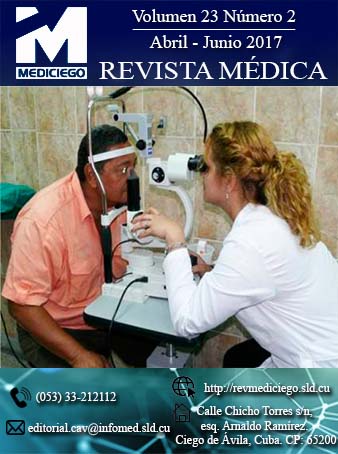Scientific, technological and bioethical considerations related to the indiscriminate use of the clinical laboratory
Abstract
Introduction: technological advances enable healthcare professionals to have novel diagnostic and therapeutic methods whose use contributes to increase the chances of survival and improve the quality of life of patients, although with the inconveniences of generating stress and anxiety and creating problems of bioethical character.
Objective: to expose some bioethical and scientific-technological considerations related to the indiscriminate use of the clinical laboratory.
Method: the national and international bibliography available in printed format and in Internet databases was revised. The most updated works were selected and, from them, a structured synthesis of the subject was elaborated from the perspective of the studies of science, technology and society.
Development: laboratory tests allow the specialist to confirm or rule out diagnoses, establish prognoses, control the course of the disease and treatment outcomes, detect complications, collaborate with epidemiological studies or risk groups, participate in research protocols and clinical trials for the introduction of new drugs. But the subjection of the medical criterion to the complementary examinations to the detriment of the use of the clinical method is a clear example of the technological advance associated with the intellectual recoil.
Conclusions: the indiscriminate use of the clinical laboratory implies an ethical and scientific technological dilemma, with a negative social impact of science and technology in medical practice.Downloads
Published
How to Cite
Issue
Section
License
Copyright (c) 2021 Lázaro Robert Companioni

This work is licensed under a Creative Commons Attribution-NonCommercial 4.0 International License.
Those authors who have publications with this journal accept the following terms of the License CC Attribution-NonCommercial 4.0 International (CC BY-NC 4.0):
You are free to:
- Share — copy and redistribute the material in any medium or format for any purpose, even commercially.
- Adapt — remix, transform, and build upon the material for any purpose, even commercially.
The licensor cannot revoke these freedoms as long as you follow the license terms.
Under the following terms:
- Attribution — You must give appropriate credit , provide a link to the license, and indicate if changes were made . You may do so in any reasonable manner, but not in any way that suggests the licensor endorses you or your use
- No additional restrictions — You may not apply legal terms or technological measures that legally restrict others from doing anything the license permits.
The journal is not responsible for the opinions and concepts expressed in the works, which are the exclusive responsibility of the authors. The Editor, with the assistance of the Editorial Committee, reserves the right to suggest or request advisable or necessary modifications. Original scientific works are accepted for publication, as are the results of research of interest that have not been published or sent to another journal for the same purpose.
The mention of trademarks of specific equipment, instruments or materials is for identification purposes, and there is no promotional commitment in relation to them, neither by the authors nor by the editor.






















